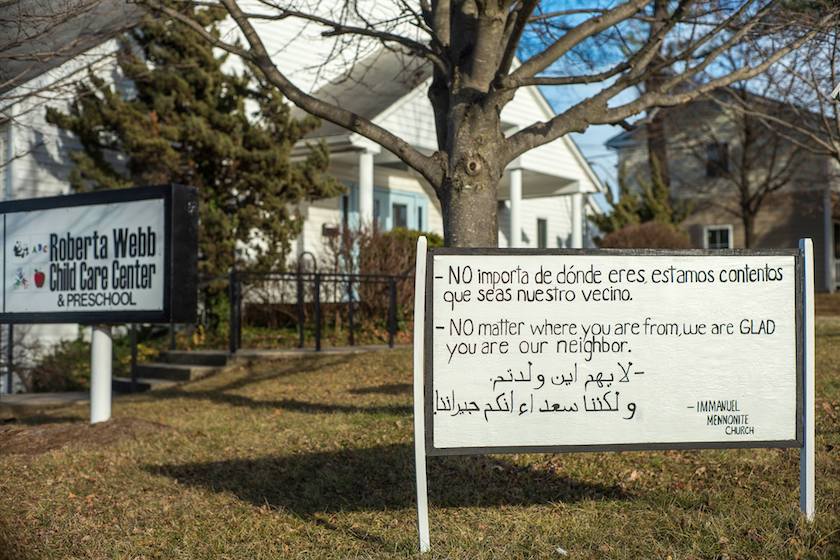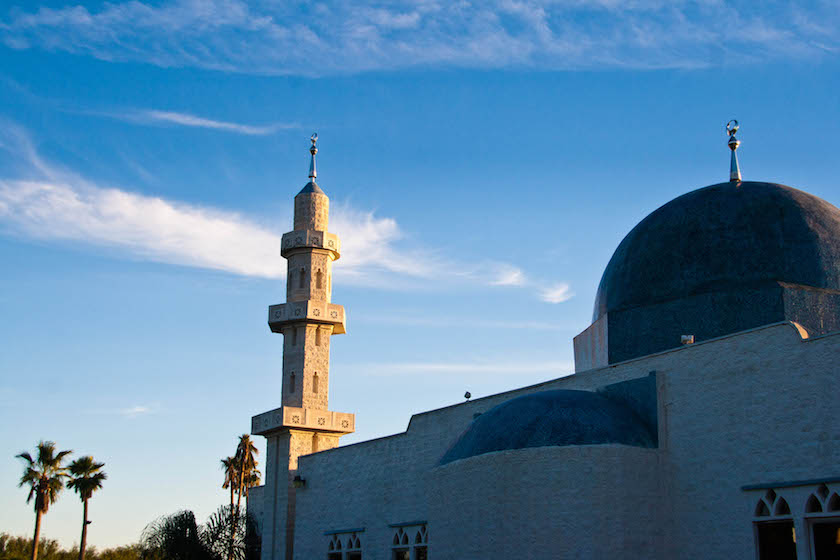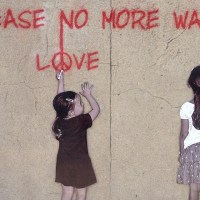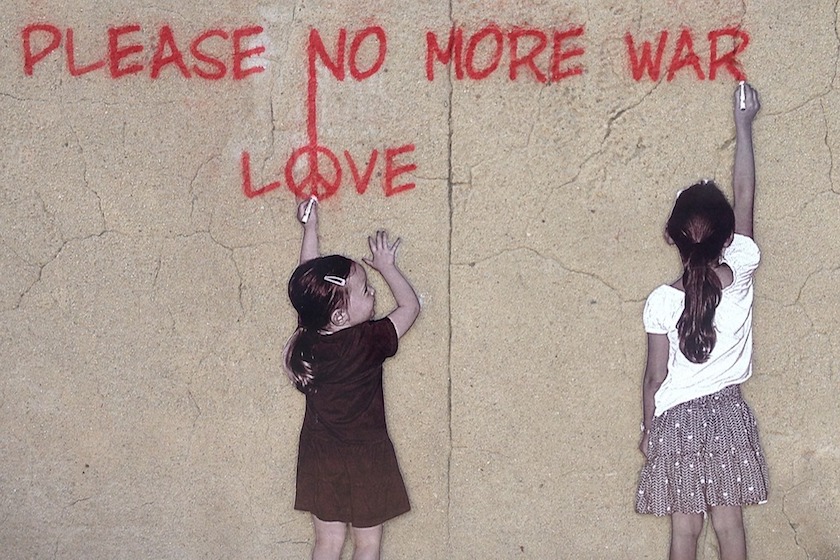We talk a lot about going to the front lines. Aleppo. Mosul. Fallujah. We talk a lot about going where no one else will go to love the ones no one else will love.
For many of us, it’s easy to think about the front lines as somewhere “over there.” But the truth is…
The front lines are where we live. And we need to show up here, too.

In the ten days following the American presidential election, there were 900 reports of harassment, intimidation, and violence across the nation, as reported by the Southern Poverty Law Center. This violence was carried out in our schools, our places of worship, and our public spaces.
Violence unmakes all of us. Not just the person on the receiving end of the physical blow, the swastika painted on their garage door, the racial slurs chanted in their school hallway, or the burned down church.
This violence feels like an uncrossable divide. Neighbors attacking neighbors, shattering communities in half. It feels twisted up and broken. Violence on our own soil is paralyzing.
It took a sign held by a tough looking Texan peacemaker to give us the words to respond to this violence. He made a sign with two simple words:
“You belong.”
He brought these words of peace to the front lines in his own community—to a mosque in suburban Dallas—to remake what violence had broken in the lives of his Muslim neighbors. He showed that love is simple and never silent.
And love always shows up on the front lines, wherever they are.
So how do we take our love to the front lines with our children? Here are four simple ways you can start.
1. Get informed.
If you want to want to find out more about the victims of violence, read about it here. Hate crime monitors like the Southern Poverty Law Center have reported immigrant children (and those who are assumed to be immigrants), as well as African-American kids and adults, are receiving the most verbal or physical abuse. The Southern Poverty Law Center also has a form on their website for you to report incidences of hate if you experience or witness them.
The FBI is also tracking violence in our schools and houses of worship.
Bottom line, it’s important we become aware of what’s happening on the front lines where we live. Ignorance is not an option.
2. Make a yard sign.
If you don’t know what to say, don’t worry. You can print a sign similar to the one below from this facebook page or from this church’s website.
Or you can take a cue from our Texan peacemaker friend:
You belong. Stay strong. Be blessed.
That’s all you have to say, really.
 Photo by Immanuel Mennonite Church via Welcome Your Neighbors
Photo by Immanuel Mennonite Church via Welcome Your Neighbors
3. Eat lunch once a week at your local school.
If you’re a parent, show up at your child’s school lunchroom. Meet your child there and spend the lunch hour with someone they haven’t met yet. Find kids who are more likely to be a target of bullying. The largest share of hate crimes are directed toward people of color.
Bullying is most frequent in lunchrooms, playgrounds, bus rides and hallways between classes. Low adult supervision creates opportunities for high incidences of bullying. 
When you sit down next to these kids you are reminding the whole room that they have incredible worth. Their life is beautiful. They belong. A simple question, like, “What are you eating for lunch today?” can cut through all the names they’ve been called in the hallway and remind them how very strong they really are.
Schools have been the most common venues for hate incidents. Love can be as simple as making a child’s lunch hour free from bullying.
4. Visit a mosque or a historically black church.
You could stand outside and hold a sign like our Texan peacemaker friend, or you could walk inside and experience a few warm handshakes and big smiles.
Showing up in someone else’s place of worship when they’ve been victimized by hate doesn’t erase what was done to them. But it does push back against the voice of hate.
Presence replaces hate with community. By physically showing up, you show hate it doesn’t have the last word. We make friends instead of making opinions. That’s how we unmake violence together.
The first time I took my children to the local mosque, I dreaded feeling so out of place that I decided to sit in my car in the parking lot, acting like I didn’t know the service had already started. This tactic worked until I heard a little voice from the backseat, “Mom, are we going to go inside or just sit out here?”
 Alkhair Islamic Society. Photo by Christopher Rose / CC BY-NC 2.0
Alkhair Islamic Society. Photo by Christopher Rose / CC BY-NC 2.0
Love got out of the car that day and propelled me into standing with my Muslim neighbors. My children left with an experience that they remember when they hear the words Muslim or mosque. Now they think of a person named Greta when they hear these words. They have respect for the word “mosque” because they know it holds three-year-old children and families celebrating their faith together on a Friday afternoon.
The only sign we showed up with that day was a sign of friendship. As we left, shaking hands, we were told, “Come again! The potluck is next week!”
I’m so glad we chose to support our neighbors instead of sitting in the parking lot.

Showing our children how to respond to violence invites them to take their place as peacemakers in our communities. It invites them to build others up instead of becoming bystanders to hate. And it changes us, too. We begin to see the front lines not just some place “over there,” but right here, wherever we are. And we begin to show up.
Showing up makes all the difference. Not only does it interrupt the story of hate, it interrupts the helplessness that fills our hearts when we witness it.
Violence is pushed back when our neighbors feel strong, when we meet each other in school lunchrooms and houses of worship, and when we tell each other we belong.


